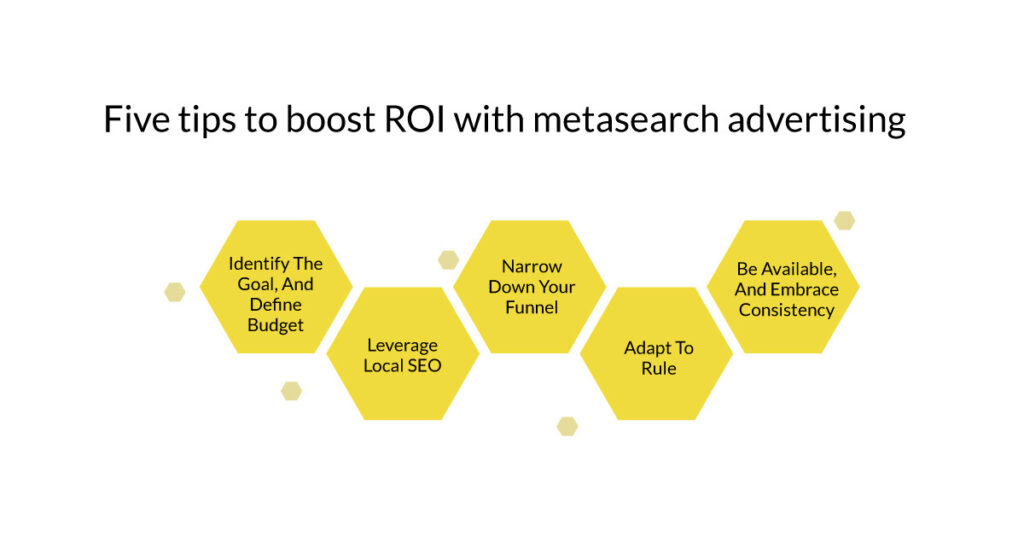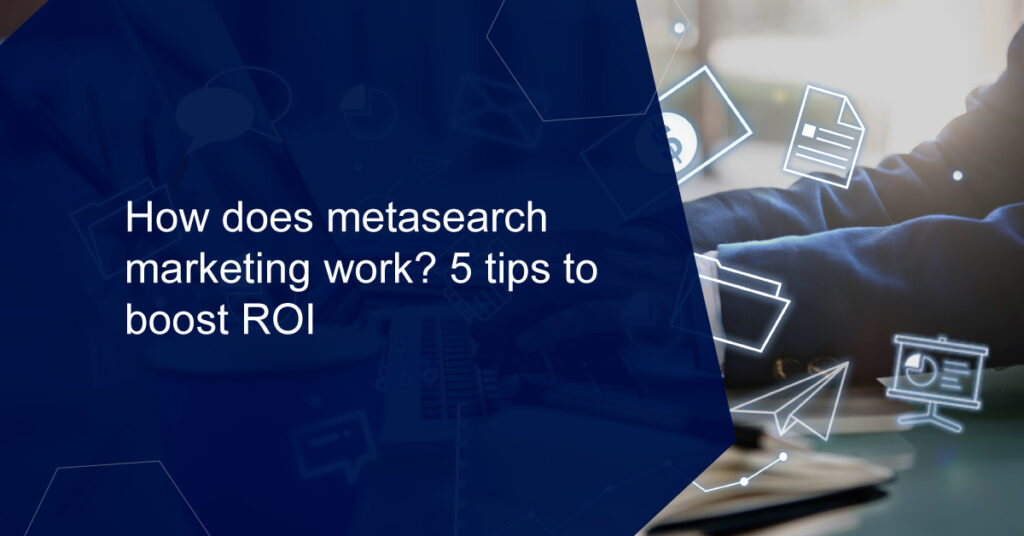Metasearch advertising is emerging as a significant force in the hospitality industry, and if optimized effectively, it offers you both better visibility and conversions. The hotel metasearch engines offer visitors price comparisons and many alternatives against a single query on the same page.
Increasingly, the engines are changing the dynamics of hotel distribution. The State of Hospitality Distribution Report by Revenue Hub finds that 94.4% of consumers use metasearch occasionally when booking their accommodation. Within this, 72.5% said they regularly used metasearch sites.
All meta-search engines use different revenue models, though PPC is the most dominant. Refer to this piece, where we discussed major hotel metasearch engines and their revenue strategies.
Here in this article, we will stick to metasearch marketing, explaining why it is essential for your hospitality business, and recommend ways to make the most of this channel.
Why consider hotel metasearch marketing?
The metasearch engines are important, and they should be a part of your distribution agency, irrespective of the nature of your business, whether you are an OTA, DMC, or TMC – as long as you offer instant bookings, you should consider leveraging these engines. Why do we say that? Because metasearch engines target a specific audience with a transactional intent, people who price shop in the travel market are always hot prospects.
Also, metasearch marketing conforms with the first principle of advertising: to communicate with prospects on a platform they already are, making it easier for you to take them onto your platform for purchase. It’s more like social media marketing. If your target audience spends more time on LinkedIn, you would be better off running campaigns on LinkedIn than on Instagram, Twitter, and Facebook.
All in all, it is a strong distribution that millions of travelers visit every day. And to top that, it mostly works on PPC model, so you get a level playing field.
Five tips to boost ROI with metasearch advertising

You have industry giants like Bookings.com and Expedia competing on Metasearch as well, but the good thing is that you can get better off them with proper strategy and planning.
Here we share some recommendations to help you derive more profitable returns from travel metasearch marketing.
1. Identify the goal, and define budget
First, determine what you expect from this channel and where you want to go. Once you have a clearer expectation and a penetrable goalpost, the journey to achieve digital marketing objectives becomes easier. Then, look at the financial bandwidth you can allocate to metasearch marketing and optimize your bidding strategy to your goal to derive better returns on investment.
2. Leverage Local SEO
Google Hotel Ads is the market leader in the hospitality meta engines. So, just advertising on Google would not be enough, and you will also have to leverage Google’s Local SEO.
There are two ways you can optimize Local SEO, first, by using branded keywords that exactly match the hotel names. Your hotel would easily rank for branded keywords unless there’s something seriously wrong with your google business profile. Second, by using non-branded keywords – these keywords are generic, like “Hotels with pool,” and have high keyword volume. If you understand your market and research well, you can gain a competitive advantage by ranking your hotels on google with non-branded keywords.
3. Narrow down your funnel
For metasearch marketing, getting impressions and clicks on your ads should not be your priority because you pay per click, but you don’t gain per click. So, it would help if you narrowed down your funnel for conversion. How?
Set realistic prices, display accurate locations, and, most importantly, list actual amenities; visitors must feel cheated after reaching your website.
4. Adapt to rule
You have to admit all marketing channels have their own feel, and not all strategies work everywhere. You must adapt to the platform’s feel. When you talk about search engines, the first thing that catches the eye of visitors is the rate. If the rate parity is on their side, they will be interested in you. It does not mean you should offer the lowest rates all the time. You can create event-specific campaigns, such as new year, and play with volume. Or list the same hotel rooms on multiple websites to generate a rate parity and get conversions from there.
5. Be available, and embrace consistency
The gap between promise and delivery might not hurt much in conventional marketing, but it hurts you most in digital marketing. Here you get instant rewards and instant setbacks. To get instant rewards, you must be available when visitors click your ad – keep your room availability updated, rates revised, and offers visible. Also, be consistent with it to keep reaping the rewards.
Metasearch marketing can be a crucial ally to your hotel distribution efforts. As we mentioned in the article earlier, it’s one of those channels where travelers come with high intent to purchase. If you serve the right amount of value there, your conversions can go north – use the tips we mentioned to make your metasearch marketing efforts successful.
Vervotech is a leading Hotel Mapping and Room Mapping API that leverages the power of AI and ML to quickly and accurately identify each property listing through the verification of multiple parameters. With one of the industry’s best coverage of 98% and an accuracy of 99.999%, Vervotech is quickly becoming the mapping software of choice for all leading global companies operating in the travel and hospitality industry. To learn more about Vervotech and the ways it can enhance your business in the long run contact us: sales@vervotech.com








